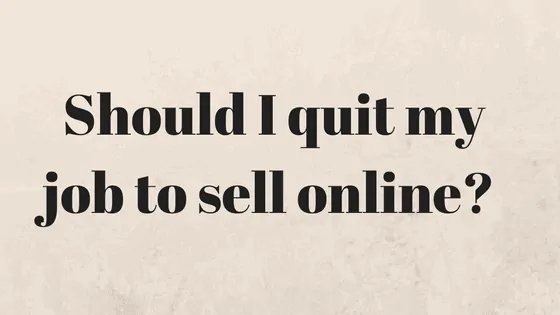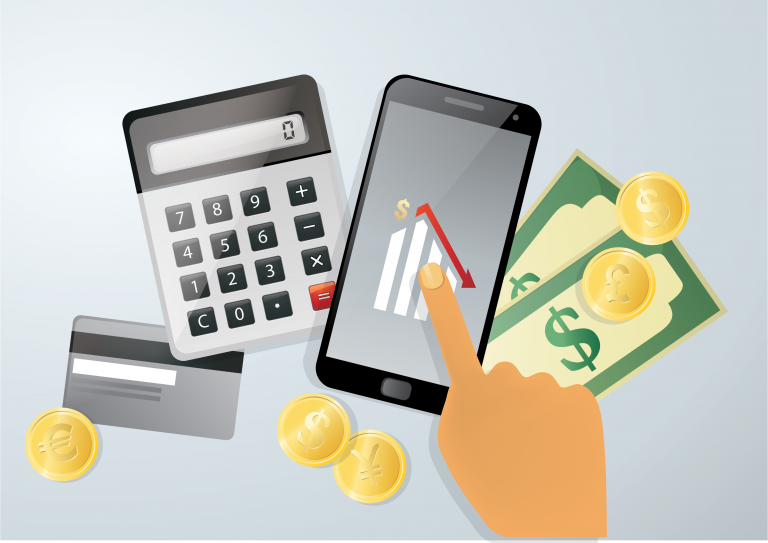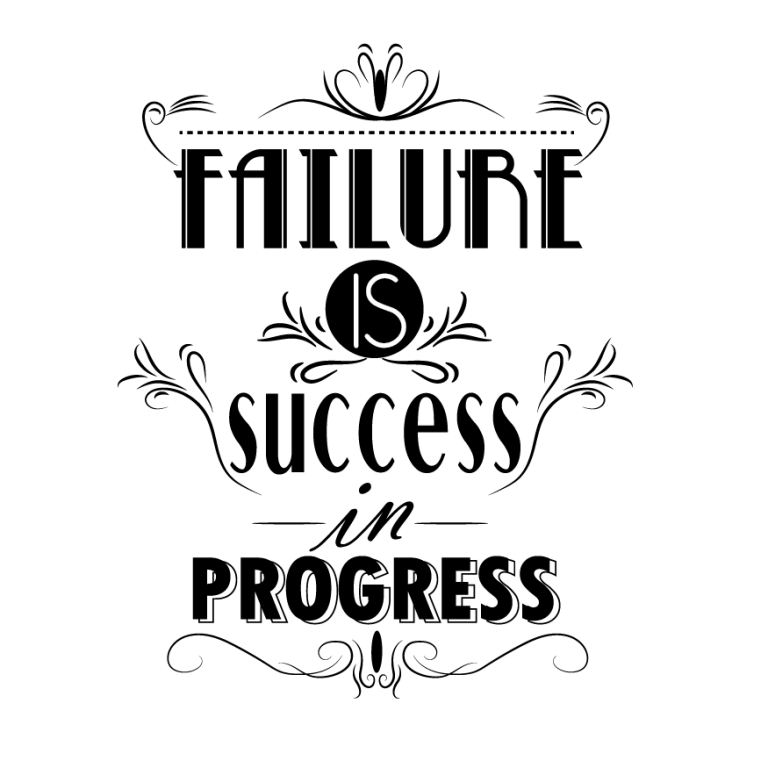In today’s post I am going to be providing considerations from an email that I received from George, a reader of this blog. Here is his question that was a part of an email he sent to me:
“Quick question. I’m thinking of leaving my corporate job to do Amazon FBA and eCommerce full-time as I’ve been in business one year and it is getting hard to scale with limited time. As crazy as it sounds I feel it is riskier to work for someone else with one source of income. What are your thoughts on this as you have made the leap yourself?”
When to start selling on Amazon full-time is an excellent question, and one that I wanted to answer in a more in depth manner. I have had some others ask me this question as well, so I decided to put together a full blog post on the topic. Keep in mind that as you are going through this, I did quit my job 3 years ago, and it has played out well for me so far, so I might be a bit biased 🙂 Throughout the post I will walk you through some things I would consider, and some of the considerations I had prior to quitting my job. If you want to read my thoughts shortly after quitting my job to do this full-time, the first post on this blog about 3 years ago will provide some insight on my mindset at the time. You can read that HERE.
Before I get into what factors I think are important to cover, I feel compelled to say that this is simply my outlook on the topic, and there’s no one size fits all approach when considering this type of decision. Some individuals will value the practical and financial considerations much more heavily in their decision making process, and others will be much more concerned with how they want to spend their time. You will need to decide what you value most for yourself.
Now, let’s get into some things to think about when considering a decision like this:
Financial Aspects to Selling on Amazon Full-Time
The financial aspects of this decision will have a very large implication on how things turn out. Here are some things to think about:
How much are you currently making selling online each month? – If you are already making a sizeable amount of money each month, then it becomes much more “reasonable” to quit your job to sell online full-time. If you aren’t making any money yet, it’s an entirely different conversation. I’d also take into serious consideration which direction your income from Amazon is trending. Then put some thought into which way you think this will trend in the future.
Amount of capital available for the business – This could be in the form of cash or credit, but that will depend a bit on your risk tolerance. The main point here is that you need to know how much capital you have available to operate your business, and how long that can reasonably last. Depending on your sourcing method, this doesn’t need to be a huge amount of money to start, but you do need to realistically project how much you can make with the capital you have available.
Amount of savings – How long can you can you comfortably cover your living expenses before you will have to begin taking income from the business? – This is a separate consideration from above. I’d highly recommend keeping this money separate from the cash available to the business. At a minimum, I’d aim for 6 to 12 months of savings available to cover living expenses.
What are your monthly expenses? – This plays directly into the above consideration. I think going through and calculating exactly what you need to live on is a very important step so that you can determine how long your savings will last. It’s also a good exercise to think about ways you can reduce this amount. One of the things that I did prior to quitting my job was purchase a duplex, and then lived in half and rented out the other half. This significantly lowered my monthly expenses. I did a 39 month case study of this on a new site (www.minutesandmoney.com) that I recently created which you can read HERE. There’s not very much content on the site at the time of this writing, but I have plans to share some more posts there.
How soon do you need to take money out of the business? – Ideally, this will be at least a year from when you begin. Once you start taking money out of the business, it will slow the growth down, as you won’t be able to reinvest everything back into the business, and you won’t see the same compounded results. The longer you have the ability to delay taking money out of the business, the better.
What will you do for health insurance? – You will want to get a price quote for what you will need to pay for health insurance. At the moment it is widely available, and fairly easy to obtain. For me the cost is not much more than what I would have been able to get from my previous employer. If you are under the age of 26, it’s also likely that you will be covered under your parent’s insurance with minimal additional cost. I did a full post on the topic of health insurance if you want more details, which you can read HERE. I would make sure to figure out what price it will take to get you the coverage you need prior to making the change.
How will you deal with taxes? – As a self-employed individual, you will be responsible for both the employer and the employee side of FICA taxes. This is an additional tax burden, and will increase the amount of taxes you will pay if you have the same income as if you continue to be employed by someone else. If you use the proper business structure, you can minimize the tax burden to some extent. You can read more about the business structure I use and how it helps with taxes HERE.
Those are a few of the more important financial considerations that I would think about, but is not an all inclusive list. I would recommend sitting down and spending some time doing a brainstorming session to see if there are additional financial considerations that you might affect you.
Intangible Considerations for Full-Time Selling
The next group of things that I will be discussing are what I am calling “intangible” considerations. These are things that are hard to quantify, but are very important to the decision. In many cases I might argue they are more important than the financial considerations. In this section, I will simply be asking the questions, and won’t be going in depth into the reasoning for each of the items on the list.
The intangible considerations get into the details of what you want to be spending your time on and what you enjoy doing. Here are some things to think about in regard to intangibles:
If money wasn’t a factor, what would you do with your time?
How much do you value having complete control of your schedule?
What Motivates you?
Are you an independent action taker or do you do better with someone telling you what to do?
What are your goals in life? How does a full-time job or a business fit into them?
Do you enjoy your current full-time job?
Do you have the support of my family and friends in relation to this decision?
How do you deal with uncertainty?
Those are a few questions to think about. I can say that for me, the freedom of schedule and being in control of my life was a major motivating factor. It was at least equal to the financial considerations, if not higher. Those are just a few things to think about, and is by no means an all inclusive list.
What’s the worst case scenario? / Do you have a backup plan?
In a decision like this, I think that it is very important to consider what the worst case scenario is. This allows you to know what the downside is of the decision, and effectively evaluate the risk and reward.
For example, when I quit my job to pursue making a full-time income online, I knew that I could go back and get another job in the accounting field if I needed to. My prior employer actually told me to let them know if I was ever looking for a position in the future. So I considered my backup plan to be going back to my old employer, or finding another job in the accounting field.
So my worst case scenario would look something like losing the money that I invested in the business, and working for essentially no pay for 6 to 12 months. After that, I would then go back to working in the accounting field.
What does the worst case scenario look like for you?
Deciding to Sell on Amazon Full-Time
Ultimately, I believe that this decision comes down to a risk / reward analysis.
For me personally, the risk or the downside as discussed above was not that significant. I didn’t have to worry about my own family or any other considerations other than myself, as I was 24 and single when I quit my job. This will obviously be different for everyone reading this, but in my case the downside was pretty low in my opinion.
The upside includes the freedom of schedule, following my dream of owning my own business, income not being tied to hours worked, among other advantages.
When I compared the risk of losing a little bit of money for the chance for all of the aforementioned upside, it made the decision pretty easy. I was still a little nervous at the time, but I knew that the risk / reward analysis I had done prior to quitting was leading me in the right direction.
A few additional questions from George:
I’m including these in this post as others reading this may have similar thoughts / questions that they are asking themselves.
Question 1: Am I cut out for this?
There’s only one way to find out 🙂
Question 2: Will it work out? What if it does not and I fail miserably?
There’s no way to know for sure if it will work out. If you put a plan in place that sets you up for success, there’s a decent chance that it will work out, but unless you try there’s no real way to know for sure. In regards to failing miserably, this is really a matter of perspective. I think that going through and figuring out your worst case scenario as discussed above in the blog post will help in this regard. I wouldn’t necessarily consider trying this and having it not work out a failure either. Sometimes it is better to pursue your goals and see what happens, as opposed to not pursuing them and wonder what could have happened. With that said, I would make sure to consider the risks ahead of time and make sure you aren’t taking any unnecessary financial risks. But I think failure is a matter of perspective to some extent, and could be viewed as an experience or “tuition” for the future.
Question 3: Is selling on Amazon riskier than just having a nice paying corporate job?
Maybe. This one is a matter of perspective. Corporate jobs often seem safer on the surface, but people get fired, laid off, and companies go under all the time. With that said, having all of your income tied to Amazon is a somewhat risky scenario as well. Ultimately, I think this question is one that each person has to answer on their own.
Question 4: When should I take money out of the business? (We have not taken 1 cent out of our business to pay ourselves since inception 1 year ago about.) Everything has been reinvested into more products/inventory.
Generally speaking, the longer you can wait the better. This allows you to continually compound your returns, and continue growth. In terms of putting this into practice, the ideal scenario is if you can wait to take money out until you have excess cash flow to cover the amount of the money you are taking out of your business. Personally, I began taking a salary from my business after about 15 months full-time. I definitely could have sooner, but it would have impacted my rate of growth.
Those are a few of the things that I would recommend thinking about when it comes to deciding whether or not selling on Amazon full-time makes sense for you. It’s also similar to some of the things I considered prior to quitting my job back in 2013. Thank you to George for the question, and I hope this blog post is helpful.
If you are reading this and have any questions, comments, or additional factors you think should be considered, please share them in the comments section below!




Hey Ryan,
Great article, quitting my job to do Amazon along with other online revenue sources sounds better everyday.
I have been using Amazon FBA for about 5 years now so I am comfortable with most parts of the business. I have some inventory now but I have never had a huge inventory mainly because of lack of time to source.
In order to be comfortable quitting my job I would eventually need to profit around 3500-4500 a month.
What size inventory should I shoot to keep on hand to make that kind of profit?
Hey Chad,
Thanks for the comment. The amount of inventory on hand to hit that profit threshold will vary quite a bit depending on both your margins and how fast you are selling through your inventory. Since you already have some experience selling, my recommendation would be to look at how much inventory you have had on hand at various points in time, and how much profit you were making. For example if there was a point in time where you were making $500/month and had $1,500 in inventory on hand, you could use those numbers as a starting point. You’d need about 8X the income, so the inventory you’d need would be 8X as well which would be about $12,000 in this example. You’d need to run the numbers exactly for your business, but that would be how I would figure out what inventory value on hand to aim for.
Best Regards,
Ryan
Great post, thank you so much. I Like your intangible considerations listed.
Thank you, glad you enjoyed the post!
Best Regards,
Ryan
thank you, your post is really helpful!, I am in position to start up now, was actually looking for different type of information and came across your post, not sure when you did post this but if you are still up there, I would like to discuss things even further and learn more from your experience